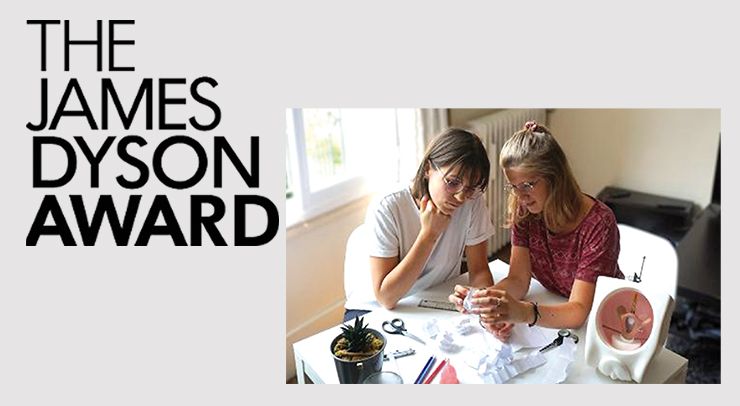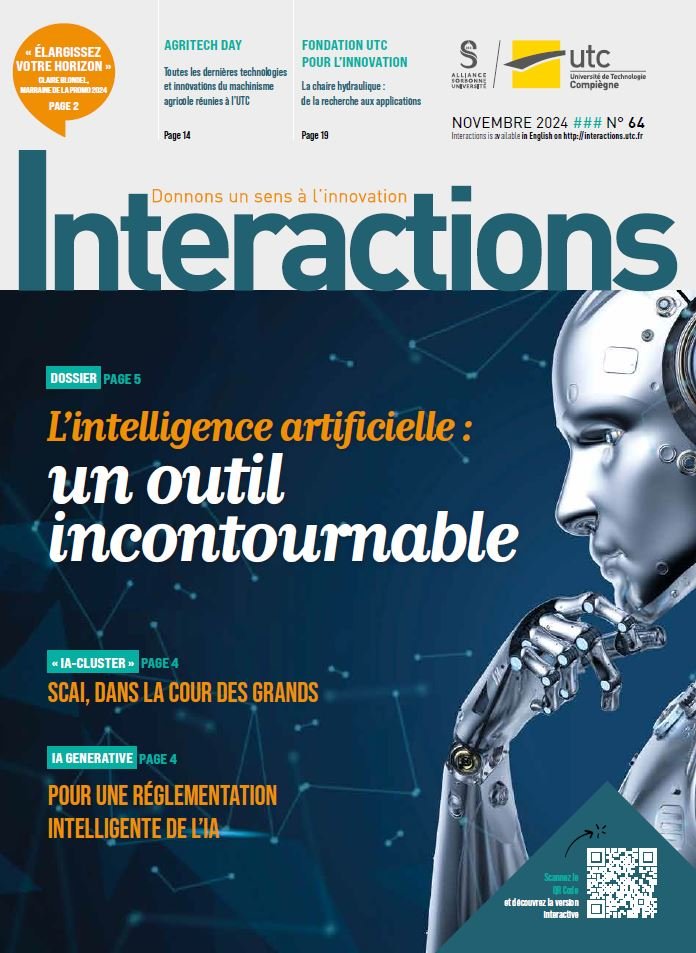Tuli, the menstrual cup inspired by origami and tulips

UTC students Auxane Caseiro and Charlyne Kerjean won the national James Dyson Award 2020 for designing Tuli, a tulip-shaped menstrual cup. Their goal? To democratise access to these hygienic protections. We zoom in on this 100% feminine and 100% innovative project.
How did your Tuli Cup project originate? It began with a disappointing observation made by the two students: “Today, there is no hygienic period protection adapted for women”, explains Auxane Caseiro. “Too expensive, poorly adapted to our anatomy, sometimes dangerous for health, and above all polluting”. The situation seemed bleak for the two industrial design students. So they decided to carry out research on the subject. “We discovered that menstrual cups are the most suitable devices for women,” continues Charlyne Kerjean. “But when we looked more closely at this device and conducted a survey of 1 344 women, we realised that there were problems with folding and use.” What were the problems? The suction created when the appliance is removed.
So, in February 2020, the two young women decided to look into this everyday object to try to find solutions. Long evenings of research, analysis and tests to build a prototype different from the cups already existing on the market. By choosing to give their device a tulip shape, they have created a system that is easier to remove and therefore more practical for its users. Last July, they decided to be candidates for the James Dyson Award, an innovation and design competition. “With the help of Anne Meuleau and Emmanuel Corbasson, lecturercum-research workers at UTC, and Nicolas Piton, head of the prototyping platform at the UTC Daniel Thomas Innovation Centre, and thanks to the long hours spent on the FaceTime video-conferencing channel, which we spent in lockdown, we set up this new device for women. First in the form of an origami, then in the form of a real prototype.”
And their innovation proved attractive. Last September, the two inventors won the national competition prize ahead of dozens of other participants. “Three reasons explain the success of our two students in this competition, explains Emmanuel Corbasson, Director of the Industrial Design Department of UTC at the time. Firstly, they put together a very relevant product to meet a need expressed by millions of women all over the world. Secondly, because it is a subject not frequently dealt with by engineers, which nevertheless it remains a highly taboo topic. Finally, because it’s an ecological issue to which Dyson has been sensitive.“
I there a future for Tuli cups? First of all, the two students want to refine and enhance their prototype and 3D print it in medical silicone for testing in real conditions. “There might be a lot of changes compared to our usual prototypes,” Auxane anticipates, “but it will be proof that our idea is a good one. “And who knows, maybe tomorrow they will be able to start their own business? “Why not, but for now, our goal is to have a product that works well,” concludes Charlyne Kerjean.




